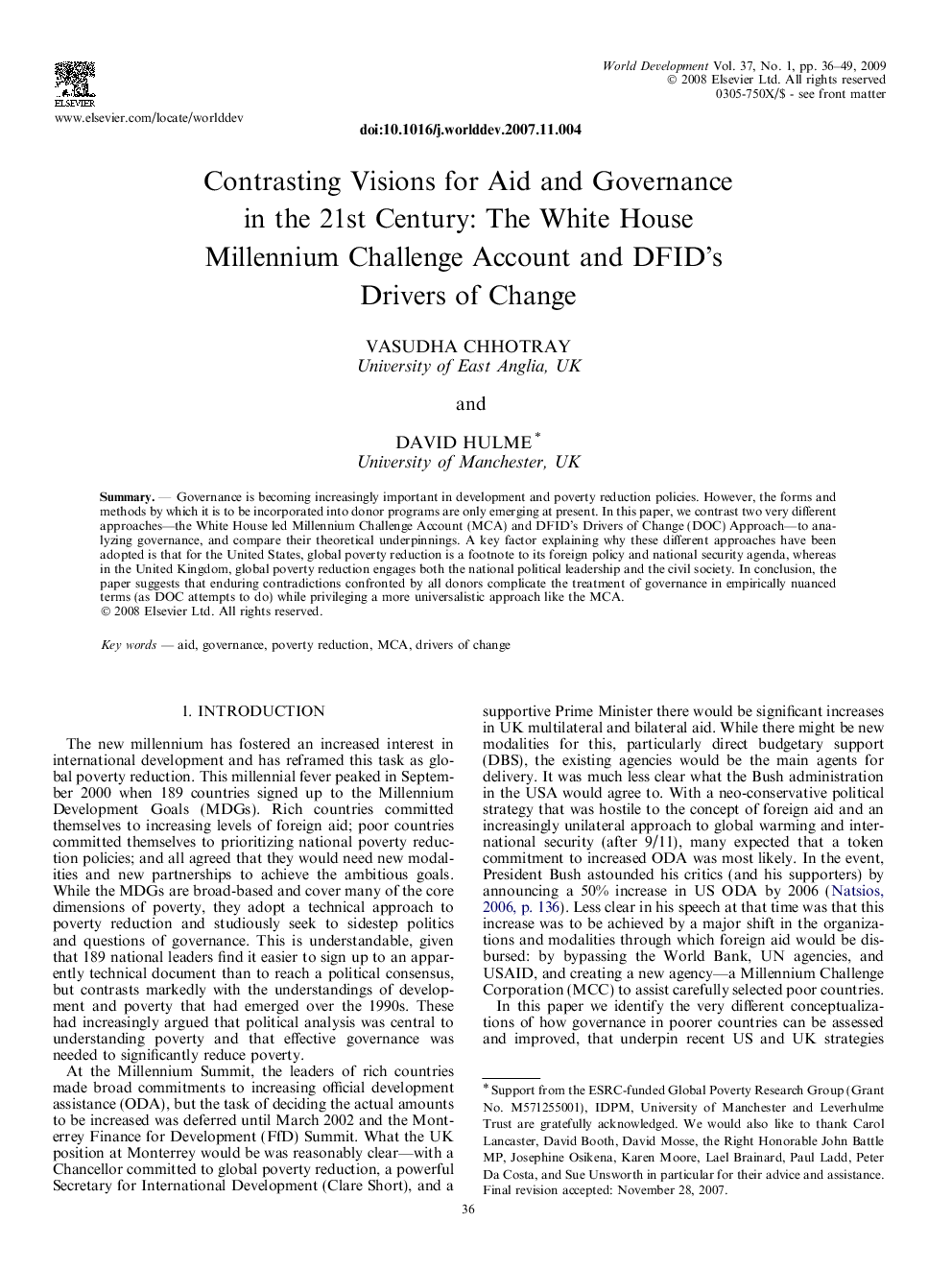| Article ID | Journal | Published Year | Pages | File Type |
|---|---|---|---|---|
| 992144 | World Development | 2009 | 14 Pages |
SummaryGovernance is becoming increasingly important in development and poverty reduction policies. However, the forms and methods by which it is to be incorporated into donor programs are only emerging at present. In this paper, we contrast two very different approaches—the White House led Millennium Challenge Account (MCA) and DFID’s Drivers of Change (DOC) Approach—to analyzing governance, and compare their theoretical underpinnings. A key factor explaining why these different approaches have been adopted is that for the United States, global poverty reduction is a footnote to its foreign policy and national security agenda, whereas in the United Kingdom, global poverty reduction engages both the national political leadership and the civil society. In conclusion, the paper suggests that enduring contradictions confronted by all donors complicate the treatment of governance in empirically nuanced terms (as DOC attempts to do) while privileging a more universalistic approach like the MCA.
